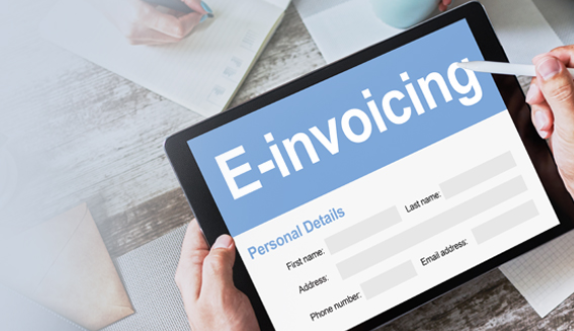Products
- Products
- Products Overview – Accelerate innovation and customer centricity with SunTec.
- Benefits and Loyalty Management – Improve your share of wallet – engage with your customers across product lines with targeted and differentiated loyalty programs.
- Deal Management – Automate end-to-end deal management and provide flexibility to create customer specific deals.
- Dynamic Offer Management – Grow and enrich your customer relationships by quickly launching highly personalized and contextual offers.
- Ecosystem Management and Monetization – Embrace the open economy – adopt new business models and increase revenue sources.
- Enterprise Billing and Statements Management – Increase customer trust and transparency through accurate billing and prevent revenue leakage.
- Enterprise Product Management – Establish customer choice at the heart of your enterprise and enable right selling.
- Enterprise Indirect Taxation Management – Ensure compliance with all indirect taxation requirements, including VAT and GST, while facilitating efficient e-invoicing.
- Relationship-based Pricing Management – Bring pricing to the forefront of your customer engagement strategy by creating an enterprise pricing master.
- Custom right
Discover how pricing plays a crucial role when formulating strategies to deliver superior customer experience.

- Products Overview – Accelerate innovation and customer centricity with SunTec.
- Industries
- Industries Overview – Count on our vertical focused, award-winning products and solutions.
- Financial Services – Get the agility and scalability to digitally transform your offerings and reap benefits of product innovation and real-time analytics.
- Insurance – Identify and mitigate revenue leakages, rationalize products, connect with external partner ecosystems and present contextual offers.
- Telecom – Enhance your customer experience management capabilities with the right level of process automation, analytics and product innovation.
- Travel – Take your business to the next level and create multiple monetization opportunities on a single platform.
- Custom right
Getting Tech Right: Selecting the Right Software Products to Fulfil the Digital Demands of Banking How must banks gear up for a digital future? Be an early mover and get the Finextra impact study:

- Industries Overview – Count on our vertical focused, award-winning products and solutions.
- Solutions
- Solutions Overview – Build relationships, enhance efficiency, and ensure compliance.
- Custom right
- Personalization Solution for Banking – Tailor your offer to each customer’s specific needs.
- Product Rationalization – Reduce complexity, enable agility, and offer a spectrum of choices to your customers.
- Credit Card Solution – Personalize your credit cards program to attract and retain customers.
- VAT – Comply with Value Added Tax (VAT) in the GCC.
- Negative Interest Management – Acquire the capabilities required to rapidly roll out negative interests and evolve with the policy.
- Banking-as-a-Service – Deliver lifecycle experiences through the ecosystem and not with mere products and services.
- Invoicing Solutions for Swedish Banks – Meet your invoicing needs seamlessly and automate end-to-end billing process.
- Account Analysis Solution – Deliver accurate and transparent account analysis statements
- ESG Solution – Accelerate Your Bank’s Progress on its ESG Journey with the SunTec ESG Solution
- e-Invoicing Solution for KSA – Increase transactional efficiency and ensure complete digital invoicing while also staying compliant.
- Personalization Solution for Banking – Tailor your offer to each customer’s specific needs.
- Product Rationalization – Reduce complexity, enable agility, and offer a spectrum of choices to your customers.
- Credit Card Solution – Personalize your credit cards program to attract and retain customers.
- VAT – Comply with Value Added Tax (VAT) in the GCC.
- Negative Interest Management – Acquire the capabilities required to rapidly roll out negative interests and evolve with the policy.
- SunTec Banking-as-a-Service – Deliver lifecycle experiences through the ecosystem and not with mere products and services.
- Invoicing Solutions for Swedish Banks – Meet your invoicing needs seamlessly and automate end-to-end billing process.
- Account Analysis Solution – Deliver accurate and transparent account analysis statements
- e-Invoicing Solution for KSA – Increase transactional efficiency and ensure complete digital invoicing while also staying compliant.
- ESG Solution – Accelerate Your Bank’s Progress on its ESG Journey with the SunTec ESG Solution
- Custom right
- Solutions Overview – Build relationships, enhance efficiency, and ensure compliance.
- Platforms
- Platforms Overview – Built for customer-centricity, efficiency, and security.
- Custom right
Celent's Take on SunTec Xelerate: Helping Banks Adopt Customer-Centric Product Strategies

- Insights
- All Resources – Read up on the latest market developments and expert insights.
- Articles – Know the multiple facets of key industry topics through our articles.
- Blogs – Explore our latest blogs.
- Case Studies – Discover how our clients across verticals benefited with SunTec.
- Data Sheets – We have a lot to say, unravel our product offerings!
- eBooks – Get a comprehensive look into the top industry trends.
- Podcasts – Listen to our latest podcast episodes on banking, telecom and more.
- Point of View – Here’s our take on the industry’s pivotal topics!
- Reports – Get insights on topics that are transforming enterprises.
- Use Cases – Discover use cases that match your organization’s business needs
- Videos – Watch our videos to know how our products and solutions are helping organizations adopt a customer-first strategy.
- Webinars – Get the most valuable insights from industry pioneers and optimize your business.
- Whitepapers – Get the newest thought leadership content from our experts.
- Custom right
Six-in-10 banks cite real-time account balance information as the most important service that they offer to corporate customers. Find out more on how to reinvent account analysis.

- All Resources – Read up on the latest market developments and expert insights.
- About
- Company – SunTec offers a portfolio of industry-agnostic products and solutions that empower organizations like yours to orchestrate seamless customer experiences, deliver exponential value, and much more!
- Contact Us – We’d love to hear from you!
- Career – Become a part of a global community of passionate professionals! Come, join us and find the job you love.
- CSR at SunTec – Know more about our CSR initiatives as we work towards a better tomorrow.
- Events – Know more about the top industry events we host and are a part of!
- ESG at SunTec – Our commitment to sustainability is fundamental, driving excellence in our ESG initiatives that resonate deeply with global standards and aspirations.
- ESG at SunTec – Our commitment to sustainability is fundamental, driving excellence in our ESG initiatives that resonate deeply with global standards and aspirations.
- News Room – Explore our latest media coverage and press releases.
- HR Initiative – Get a glimpse of the people who drive our growth!
- Partners – Join us to unlock the true potential of our products and solutions for an unparalleled and engaging proposition.
- Leading with Quality – At SunTec, quality is our cornerstone—guided by globally recognized standards and a commitment to delivering unparalleled value.
- Custom right
What Drives the People at SunTec? Explore inspiring testimonials and employee experiences, one story at a time

- Company – SunTec offers a portfolio of industry-agnostic products and solutions that empower organizations like yours to orchestrate seamless customer experiences, deliver exponential value, and much more!
Industries
Solutions
APAC
EMEA
Nordic
Latam
North Americas
Insights

